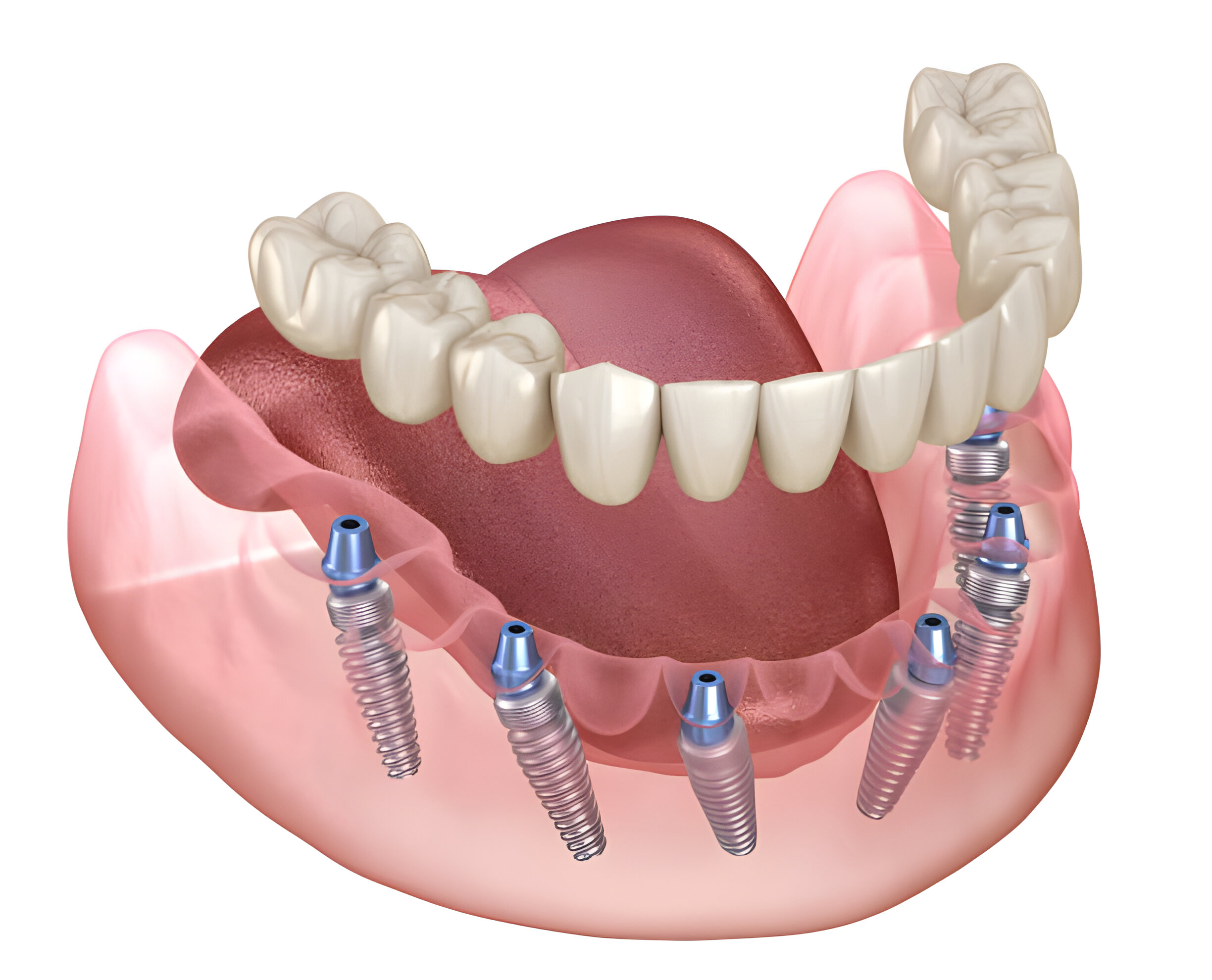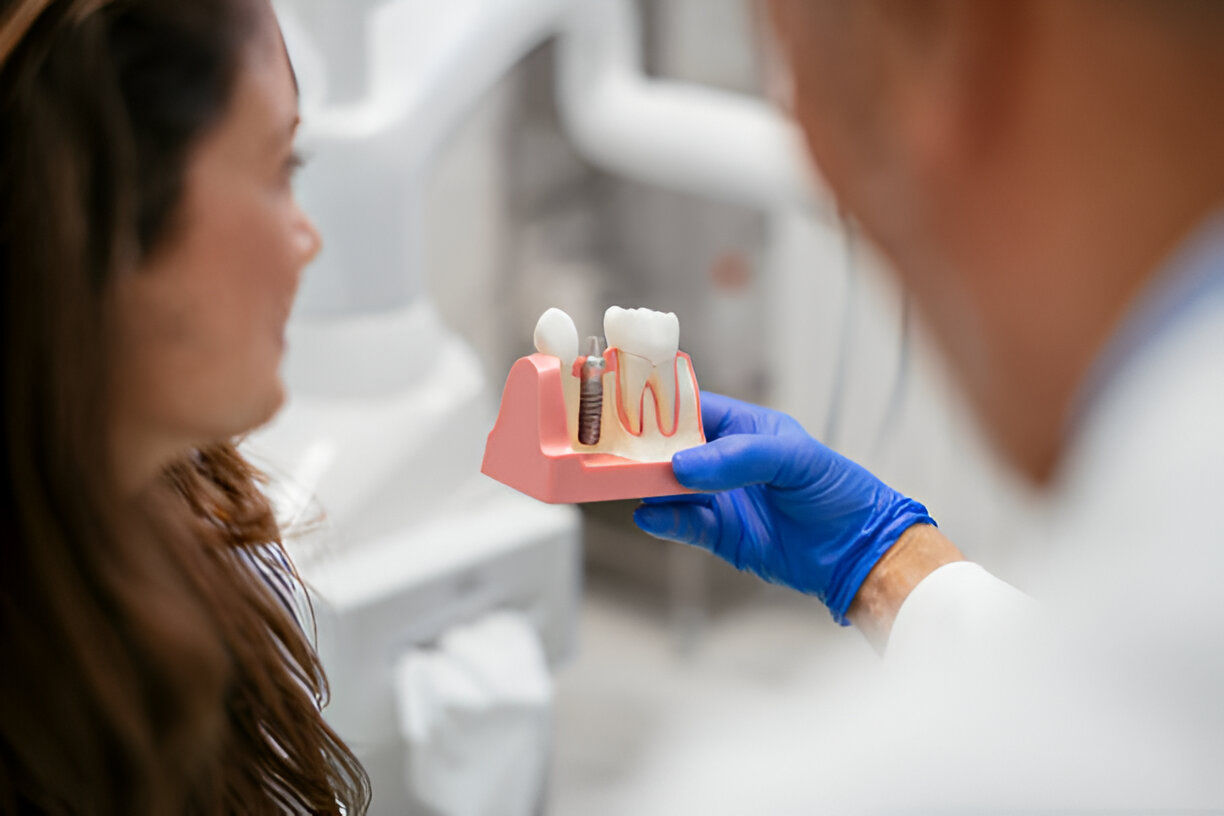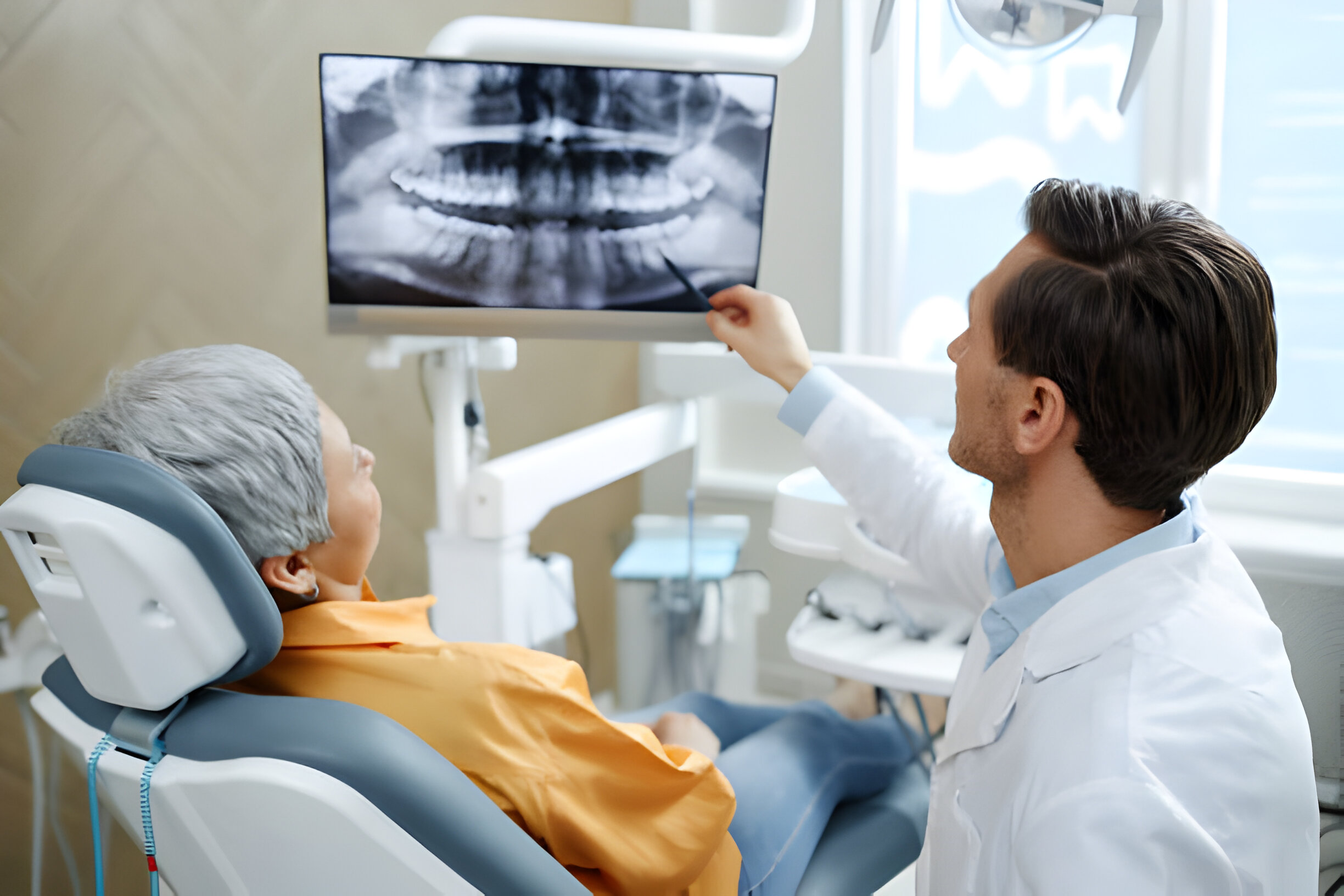Summary
Dental implants have become one of the most trusted solutions for replacing missing teeth, restoring both a person’s smile and confidence.
In fact, studies show that dental implants have a success rate of over 95% but recovery depends on good care, especially proper nutrition. Eating the right foods not only helps with faster recovery but also supports the long-term success of your new implants.
In this article, we’ll cover:
- Healing-friendly diet tips after implant surgery
- Foods you should avoid during recovery
- Local resources in Grants, NM, to help you eat right
So continue reading as we learn more about the role of diet in healing post dental implants. Let’s get started.
Why Diet Matters After Dental Implants
After getting your dental implants done, the key aspect now is to take care of what you eat. This is because a healthy diet plays a significant role in your quick and easy recovery. The right food can boost your recovery, while eating unhealthy food can slow down the process and sometimes may even cause serious issues.
1. Adequate nutrition
Healthy and adequate nutrition is necessary for the healing process. The body requires a balanced distribution of vitamins, minerals, protein, and other essential nutrients to repair and rebuild tissue. When you consume a nutrient-rich diet, it promotes bone growth and supports the healing process.
2. Reducing Inflammation and Infection
Inflammation and infection of the implants are often caused because of eating foods that are rich in sugar and acid. Therefore, consuming soft, nutritious foods can help reduce inflammation and prevent the growth of harmful bacteria. This prevents any sort of infection, which is one of the most common complications after implant surgery.
3. Supporting Osseointegration
Osseointegration is a process that bonds your implant to your jawbone. Nutrient-rich foods support strong bones, which in turn help in this process.
If you’re exploring ways to afford treatment, some people even consider options like dental in grants for implants to help with costs.
The First Few Days After Surgery – Soft Food Phase
The first few days after your surgery are all about giving your mouth a chance to heal. Eating soft, gentle foods will make things easier and keep you comfortable.
What to Eat
Stick to foods that don’t require much chewing. Some good choices include:
- Smoothies (cool and soothing)
- Yogurt
- Mashed potatoes
- Applesauce
- Oatmeal
- Warm broths
These foods are soft, filling, and won’t put pressure on your healing gums.
Stay Hydrated
Hydration is the key. Sip plenty of water throughout the day. Consuming herbal teas and soups can also be a comforting experience. Ensure that you skip any hot meals.
What to Avoid
Try to skip foods that are hot, spicy, acidic, or crunchy. They can irritate the implant area and slow down the healing process.
Small, Frequent Meals
Instead of eating large meals, try consuming in smaller portions and increasing the frequency. This will keep your stomach always full and save your teeth.
Transitioning to More Variety
After the first few days, you can gradually add more variety to your meals. This stage involves providing your body with the necessary nutrition while protecting your healing implants.
Soft but Protein-Rich Foods
Try gentle, easy-to-chew options like:
- Scrambled eggs
- Cottage cheese
- Soft fish (like salmon or tilapia)
- Cooked pasta or rice
These foods are light on your mouth but packed with protein, which helps your gums and bones heal faster.
Nutritional Focus
Along with protein, include foods that contain minerals and vitamins, because everything in the right amount is crucial for your body. This balance helps to recover fast and reduces the risk of common tooth implant problems, such as delayed healing.
Gradual Reintroduction
Over the next two weeks, you can begin to transition to food items that are slightly firmer. But always remember the golden rule after implants: “Don’t chew from the side of your implant”.
Long-Term Diet for Strong Implants
Taking care does not always mean brushing and flossing. What you eat every day plays a significant role in maintaining the strength of your implants, gums, and jawbone. A balanced diet that includes all the essentials helps maintain your oral health effectively.
Nutrients That Matter
- Calcium: Found in dairy products and leafy greens, calcium keeps your jawbone strong and stable.
- Vitamin D: Foods like eggs and salmon help your body absorb calcium better.
- Vitamin C: Citrus fruits and berries boost gum health and healing.
- Protein: Lean meats, beans, and lentils repair and strengthen tissues.
Smart Eating Habits
Avoid packing snacks and consume whole foods instead. Choosing fresh, healthy meals helps your implants last longer and keeps your smile in great shape.
Foods and Habits to Avoid
When healing after dental implants, what you eat and how you care for yourself make a big difference. Your dentist in Grants, NM, will usually share a list of things to avoid. Here are the most important ones:
- Hard or crunchy foods – Nuts, hard candy, and even chewing on ice can put too much pressure on your implant, potentially slowing your recovery.
- Sticky foods – Treats like caramel or chewy candy may tug at the healing tissue and cause discomfort.
- Sugary and acidic foods – Consuming too much sugar or soda can irritate the gums and make it harder for your mouth to heal properly.
Lifestyle Habits to Watch
Smoking and drinking alcohol can also slow down your recovery. Both reduce blood flow, which is essential for healing.
By making a few smart choices and avoiding these habits, you’ll give your implants the best chance to last for years.
Local Tips for Patients in Grants, NM
Healthy Food Options
Eating soft, nutritious foods is key after dental implant surgery. In Grants, you’ll find fresh produce and healthy choices at places like Smith’s Food and Drug or SaveMart. These stores carry a variety of soft fruits, yogurt, eggs, and soups, making them perfect for gentle, healing-friendly meals.
Community Support
You don’t have to do this journey alone. Local resources and area dental clinics are available to guide you. You may also find dietitians and wellness groups in town who can share tips on eating right while your implants heal.
Why It Matters
Following a healthy diet not only implies comfort but also plays a major role in the longevity of your implants in good condition. The more you care for your diet and overall health, the brighter your smile and glow will be in the long run.
Takeaway
- Soft, nutrient-rich foods speed up healing – Stick to smoothies, yogurt, eggs, and soups in the early days.
- Protein, vitamins, and minerals are key – They help strengthen gums, bones, and tissues around your implants.
- Avoid hard, sticky, and sugary foods – These can slow recovery and harm your implants.
- Healthy habits can help implants last longer – stay hydrated, eat balanced meals, and avoid smoking and excessive alcohol consumption.
- Ready to make a difference in your smile? Connect with our experts at Sundance Dental Grants today!



